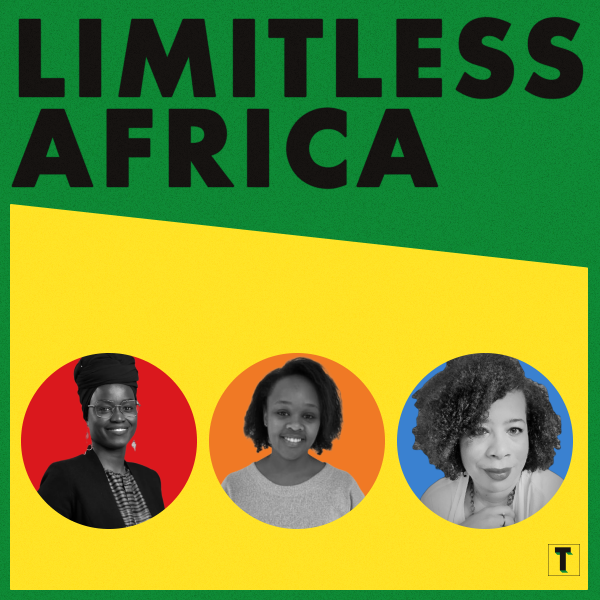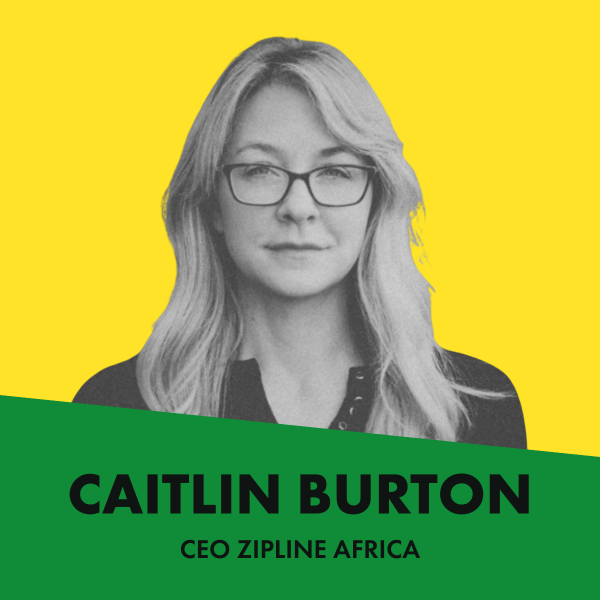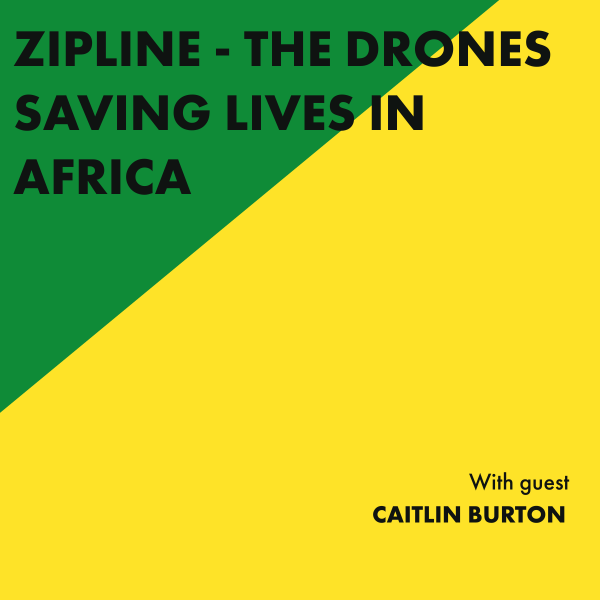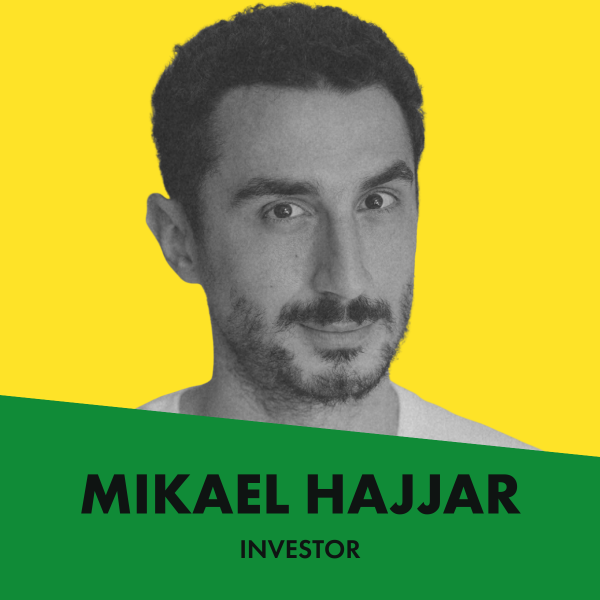How can we stop male violence against women?
With guests Natácha Magalhaes, Peninah Kimiri, Woppa Diallo

Episode notes
According to some surveys, over a third of women in Africa have experienced physical violence in their lifetimes. We ask three activists from Senegal, Cape Verde and Kenya: how can we stop violence against women?
Transcript
How can we stop male violence against women?
In this episode we talk about gender based violence
“She suffers violence of all kinds: physical violence, sexual violence, verbal violence, psychological, everything… until she frees herself from this violence in a way that happens a lot.”
“Some women not only accept violence inflicted by men, but also encourage other women to accept that kind of violence too.”
“Every woman knows a survivor, but somehow, men usually don’t know a predator. I don’...
How can we stop male violence against women?
In this episode we talk about gender based violence
“She suffers violence of all kinds: physical violence, sexual violence, verbal violence, psychological, everything… until she frees herself from this violence in a way that happens a lot.”
“Some women not only accept violence inflicted by men, but also encourage other women to accept that kind of violence too.”
“Every woman knows a survivor, but somehow, men usually don’t know a predator. I don’t know how that math works.”
Claude: According to some surveys, over a third of women in Africa have experienced physical violence in their lifetimes. Most of the time, men are responsible. For this episode I wanted to ask three activists from Senegal, Cape Verde and Kenya: how can we stop violence against women?
Woppa Diallo is a lawyer and gender activist based in Senegal. She started her own association fighting for women’s rights at the age of 15 and has been working to defend them ever since.
I asked her: do you see violence against women as a problem?
Woppa: It’s a big problem, a very big problem. It’s what’s called the patriarchy. It is a huge burden. And it’s this violence and patriarchy which makes some women not only accept violence inflicted by men, but also encourage other women to accept that kind of violence too.
And often people don’t understand. They say: But yes, that kind of violence is inflicted by women on women. But that’s not true. Women may inflict that violence on women but they do it because men are behind it. It’s the patriarchy that’s behind it to make people think like that.
So, we have to rid ourselves of that mindset. When it comes to decision making, we fought for equality. And it has happened, we have as many men as women in elective positions and semi-elective political bodies in Senegal.
The law for gender equality means that there have to be as many men as women. But you still find male violence, you still find the patriarchy in offices. In offices, women are always relegated to the background.
And when it comes to picking women, in the political arena, for example, a certain type of woman is always chosen: a calm woman, a woman who will not contradict you, who will vote with you on a certain laws. They don’t choose women with big mouths, who might say no, that they don’t agree, that they won’t vote for that just because they are in the same party. They never choose that type of woman. They don’t pick her. So there’s also that type of violence, that way of twisting rules, where they respect the law but in name only.
Women never get away with anything. A small mistake is totally damning in our society. They say: that woman is a whore, she shouldn’t be there, she’s a thief. And when a man makes that type of mistake he is always forgiven.
You know, personally, I know that no violence is worse or better than another type of violence but I do think that psychological violence is worse than you might think. I have been working with women for 15 years, and I am an indirect victim of this type of violence. There are times when I am very depressed because these stories make me so angry and psychologically I am lost because I get cases like these every day, perhaps five cases a day. And I have cases that stop me from sleeping, that keep me awake at night, and I cry like a child because I feel totally powerless faced with them, the fact that this woman is suffering but I can’t help her.
Claude: Can you explain how you try to change the mindset of men?
Woppa: I have said that in my training sessions I train as many potential victims as potential perpetrators. Because I don’t want the error to repeat itself. The mistake we make: is that we’re always training women in regards to gender-based violence but women aren’t the perpetrators.
Most gender-based violence is committed by men, not by women. So when we provide information on the subject we have to inform men just as much as women. We have to talk to them together, in the same room. Because, in most cases, I’ve realised these people are using violence but they don’t even realise what violence is.
So, during my training sessions and capacity building, I train men as much as women. So they feel like they are involved and they are not frightened. They realise it’s not a case of trying to confront them or start a fight. It’s not a war between men and women, it’s a war to make society more fair and equal.
Claude: Do you think you change behaviour with laws or with conversation?
Woppa: I am a lawyer, I have to admit. But as I say it all the time, laws don’t change behaviour. It’s the community approach that changes behaviour. People don’t understand that top-down approach.
Claude: Natácha Magalhaes is a Cape Verdean writer who recently published the book When Tigers Are Silenced. She often tackles the subject of gender based violence in her writing. GBV is any violence perpetrated against women or men because of their gender. Natacha speaks to our correspondent Lourdes Fortes.
Lourdes Fortes: Natácha, welcome to Limitless. What made you focus on the issue of gender-based violence in your writing.
Natacha: I usually say that writing is a weapon. A weapon in the good sense. No, perhaps it’s better to call it a tool. It’s a tool to change people’s mind, right?
It’s a tool to shock, but at the same time to create awareness of this issue when, often, the temptation is to normalise it and to not have empathy. When what we need to be is empathetic.
I am a very observant person. I am a person who also appreciates silence a lot, and this also helps me see things from a different perspective. The things I observe, the things they tell me, things that happen sometimes even with people who aren’t close, right? The stories I hear from people…! So all of this contributes to generating in me the need to write about these things.
I think it’s the story that opens the book, When Tigers Are Silenced. It’s a story about a woman who has been a victim her whole life. She is a victim of her partner, the father of her daughters. And all her pregnancies were the result of marital violence, which you know, is still something that… is violence, and it happens to many women. And because it happens in the marriage, it is not considered violence.
But it is violence when the woman does not want to and is forced. So, all her pregnancies are the result of acts of violence, the three daughters she had were not conceived with love, it was all with violence, And she suffers violence of all kinds: physical violence, sexual violence, verbal violence, psychological, everything… until she frees herself from this violence in a way that happens a lot. I write about real things.
I write fiction, but this thing really happens – there are women who end up being freed from their abusers because they kill them! And she will free herself from this aggressor, by killing him, and go to jail. And it’s our reality. You go to the city’s central jail in Praia, and most of the women prisoners there, are there because they committed this kind of crime. It is violence to end the other violence.
Lourdes Fortes: What is behind GBV? We talk about machismo, we talk about patriarchy.
Natacha: Yes, it’s cultural, that’s it: patriarchy, machismo, it’s cultural. There is a lot of sexism,
on social media, just see how men, young men of this generation, in their 20s, 30s, position themselves in relation to women. The ideas they have, the narratives they construct, they are dangerous ideas.
Lourdes Fortes: How do we change this? Because we have the will, and we have a society that is changing fast, there is more and more information out there. But a change in mentality has not yet happened to fight against these “isms”, sexism, machism…
Natacha: There is no other way, the path here is education, it is to change education. Change the role models that many families still follow. Even schools are often places where gender inequalities are perpetuated.
There’s a quote from the writer Maya Angelou, I love Maya Angelou…
She said:
‘Each time a woman stands up for herself, without knowing it possibly, without claiming it, she stands up for all women.’
Now that is a very strong sentence!
Claude: Peninah Kimiri is an expert in Gender-based violence. She is from Kenya but has worked across Africa, South East Asia, Eastern Europe and the Middle East. I asked her: how have you seen Gender based Violence addressed successfully in different communities?
Peninah: That’s a question of collaboration. So there is no silver bullet. It does take everyone, government level, community level, private actors, public actors. um On the government side, I would say it’s a drum that all activists have been talking about. We need to create laws and the most important part of them part of laws is implementing them. um In Kenya, we have a joke that when you look at all the laws on gender-based violence, if there were ever a Hall of Fame, Kenya would have the best pristine laws. But please don’t um try to come and ask us about implementation. We’re very bad at that. So always ask holding the government to account to implement them and also on the government side because they’re the final duty bearers even when private actors are not there and non-governmental actors are not there it is their responsibility to provide services and for gender-based violence because it’s such a systemic issue it’s not just because an individual decided to do it against a person it’s also because the community like indeed you already said tends to rationalize and justify it because we’re all living in a patriarchal society. For government it’s really providing free services because the consequences of gender-based violence can be long-lasting. On the community level it would be about empowering women-led and women’s rights organizations because survivors tend to report there before they report to any actor and also thinking about awareness raising so that folks can understand when gender-based violence happens to them. Behavior change just take a very long time.
Claude: Talking about behaviour change, what would you say to men?
Peninah: So we’ve said this statistically, one in three women experienced gender-based violence. That is statistically, as you move about the world, one in three women has experienced gender-based violence when you walk into a room, when you go to school, when you go into a movie theater. And statistically also,every woman knows a survivor, but somehow, Men usually don’t know a predator. I don’t know how that math works. So I say to men, if you’re not part of the solution, you are part of the problem. And I’m not saying that you are perpetrators. I’m just saying that you need to step up.
And I’m not saying for you to seek out survivors so that you can have a poster child of saying, I know this person is a survivor, but I say take up space in speaking up for women um and also for survivors. So number one, you hold the power. So whenever you have an opportunity to speak in spaces where we cannot speak as women or even penetrate, use your influence there. Number two, I’d say to men, learn to interrupt when harmful words or actions are brought up. So when comments are made, when jokes are made, I would say ask, what did you intend when you make um when you say that or you make that joke? Or my personal self favorite is what an odd thing to say out loud.
And you might say, am I interrupting each time? That’s a lot. And yes, it’s a lot, but imagine how exhausted we are as women having to either interrupt or make literal calculations every day to protect ourselves. Do I stand up for myself in this time or is it unsafe and I need to walk away? And then thirdly, I would say be an ally. So join us in the fight in whatever capacity that you can. um That might be marching. That might be writing i’m op ed that can be writing a post in whatever capacity that you have. And be intersectional in your approach.
Claude: Thank you to all our guests and thank you for that very useful advice from Peninah on how to speak up against gender-based violence in your community. Please share this episode with all your friends, you never know – it might help someone in need. Thanks for listening.
Listen next
"Africa wants jobs and technology and entrepreneurship."
With guests: Caitlin Burton
LISTEN NOW 38 mins
How drones are saving lives in Africa
With guests: Caitlin Burton, Dr Loko Abraham, Sarah Troutman
LISTEN NOW 15 min
"The world of entrepreneurship in Africa and that of Silicon Valley are converging"
With guests: Mikael Hajjar
LISTEN NOW 23 mins








